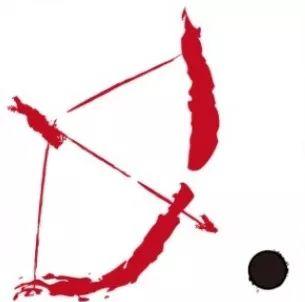
Ji I Nu Society
Organize and publish historical materials of modern China and disseminate historical knowledge
Jiao Xun, a native of Ganquan County. Character Reason Hall, a work of the hall, the late number of the old man in the hall.
Scorch
Jiao Xun was enlightened by his parents when he was a child, teaching "Mao Poems" and Tang Dynasty poems. At the age of 6, he entered the family school. At the age of 8, he was appreciated by Nguyen Thanh Hoon and gave his daughter Xu to him. At the age of 11, under the guidance of his uncle, he had already studied the "Explanation of Words and Characters", and had learned a little about the six books; he also learned to read ancient Texts according to Fan Zhenglin's requirements, and since then he has also liked to write ancient texts. When he was 14 or 15 years old, when he talked about historical events with his father, he talked about his life ambitions, and Jiao Xun said, "I would like to be Yang Huan, not for Fan Huan." At the age of 17, Liu Yong, a student of Jiangsu Province, went to Yangzhou to investigate. Jiao Xun performed well in the examination, and was received by Liu Yong during the re-examination, allowed to enter the government for further study, and instructed him to study scripture. At the age of 18, he entered Anding College. At the age of 19, he was interested in the study of scripture and began to study the Erya. At the age of 20, reading Wang Mingsheng's "Shang Shu Hou Press"...
Jiao Xun's ability to become a generation of scribes is inseparable from the influence of his family. Once, when his father tutored him to read Zhu Xi's "Notes on the Collection of Chapters and Sentences of the Four Books", he reminded him that when reading the "Four Books", he did not have to pay attention to Zhu Zi's annotations, "If you can't read, why should Zhu Zhu use reading?" If you can read, just by remembering Zhu Zhu, so that you are not afraid of the years?" Another time, his father pointed to the weeds in the lake and said to him, "Look! This is the so-called 'jagged lettuce, left and right flowing'. "These educations have a big impact on focus cycles.
Liu Yong
Of course, Jiao Xun's achievements are also inseparable from his own efforts. When he was a teenager, he studied the Bible very hard and was not afraid of hardship. For example, the three "Odes" in "Mao's Poems", the "Pan Geng" in the "Book of Shang", and the "Nei ze" in the "Book of Rites", most of the other scholars found it very difficult to read, but he was willing to study. He also loves books. At the age of 24, years of famine and the death of his parents led to the embarrassment of the family. There are only a dozen or two pieces of silver left in the family, or they are sold in exchange for the land. At that time, there happened to be a bookseller selling the Tongzhitang Sutra For 30 taels. The money was not enough, it was his wife Nguyen Thi who sold her own golden hairpin and got 12 taels of silver, which bought the book.
Of course, these efforts were not in vain, and Jiao Xun was well-informed and memorized, and studied the history of scriptures, almanacs, rhymes, and exegesis.
Mencius's Justice (Book Shadow)
At the time of Qianjia, the study of evidence was prevalent, and people's understanding of scripture, science, and historiography was greatly biased. At the age of 33, he wrote the "Book of Observations and Arguments with Sun Yuanru", which clearly proposed that "examination evidence" should not be confused with scripture. Jiao Xun said: "Sutra scholars are mainly scriptures. "What is concerned with the text itself is the content of the text, while the exhortations and examinations are not mainly based on them, but only as supplementary.
Commenting on Jiao Xunzhi's remarks, Qian Mu said: "This is the case for those who are difficult to describe in Fan Li Tang. There is no equal difference in the narrative, and each should be at its own time. Gou Fei has the meaning of the passage of time as discussed by the Li Tang, and can produce his own spirit and seek understanding by luck and thinking, and according to one of the ancients, the so-called recitation and writing of the Li Tang are not narrated. Otherwise, the length of the whiskers will be attributed to their own knowledge, and if the Japanese ancients are like this, then the so-called trust of the Litang is not shuya. But its special evidence cannot be understood, so it is not enough in the end. ”
bibliography:
1. Lu Guiping, editor-in-chief, Biography of Famous People in Yangzhou Dynasty, Guangling Book Society, 2015.04
2. Chu Mo, "The Complete Works of Chu Mo, The Rings of Thought", Shanghai Bookstore Publishing House, 2014.11
3. Yang Feng, Zhang Wei, Academic Chronicle of Qing Dynasty Classics, Phoenix Publishing House, 2015.07